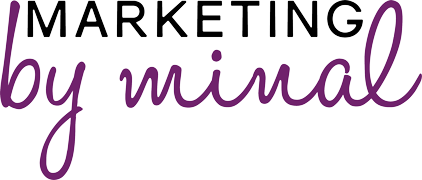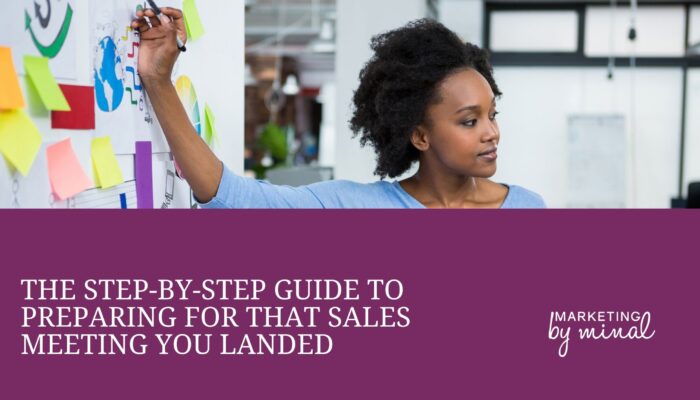The step-by-step guide to preparing for that sales meeting you landed
The most difficult thing a small business owner has to do is sell and win business. While you may be great at what you do, you’ll only earn money when you convince others how great you are, and this is far from easy. But by preparing for sales meetings, you’ll give yourself the chance of maximising your efforts and improve your chance of making money.
Most of us have to sell and it’s worth thinking about how you feel when you’re sold to. Think about your own significant purchases, perhaps a newer car or double glazing. Getting new windows is a major hassle, but perhaps yours let in the rain, or they’re draughty or you’re worried they’re not secure anymore.
The first step is probably research via the internet, then a look at your finances, check some reviews and recommendations, and then you might invite a select few salespeople to visit you. But even then, it will take further persuasion and bargaining before you sign on the dotted line (and indeed some of us might ultimately decide against buying double glazing at all).
Why? Because humans are naturally cautious and fearful when making a commitment that means parting with hard-earned cash, and you can usually make a case for sticking with what you’ve got. It’s a stark fact that very few people or organisations spend significant money without a good dose of caution and due diligence.
Think of how this may be similar to your selling process. If your product or service has a significant value, you’ll have to endure and be prepared for a rigorous process where you’re vetted against competitors and challenged to prove value. So, to give yourself the best possible chance of winning business a good start is ensuring your efforts to sell your services are as professional as you can make them.
Let’s start by assuming you’ve found a prospect – someone who sounds like they’re interested in buying from you. A huge part of increasing the odds of success is qualifying i.e. fact-finding and asking questions and here are 10 tips to help you prepare for a sales meeting.
- The Basics – if it’s a physical meeting (when we’re allowed to) make sure you know where you’re going and will be on time. Traffic and parking are things we all have to deal with so give yourself plenty of time to manage this. If you’re presenting make sure the room has projector available, that your computer has enough power, you know where your PowerPoint file is saved and the order of the slides. It’s a good idea to rehearse.
- Qualify, or research, your prospect. You can usually find out lots in advance via Dr Google. Simply by looking at a company on LinkedIn will cough up lots of useful nuggets such as their size, how long people have been in their roles and who appears to be in charge. Does anything crop up that surprises you? Perhaps you’re a Management Consultant and there’s an employee listed on LinkedIn who used to work for Accenture. It’s worth asking what influence that person may have, either by emailing in advance or bringing it up at your meeting.
- Are you sure you know what they want? Are you absolutely sure they know what you do? It’s great that you’ve managed to bag a meeting with a prospect but not great if their understanding of what you do is inaccurate, and you waste each other’s time. Imagine your business is website design but once your meeting begins it’s evident your prospect’s biggest requirement is someone to manage their social media. It’s never 100% possible to avoid mishaps like this but by being pushy and asking questions in advance will usually help.
- Make sure you know how much time you have for your meeting. Is this long enough for you to make your case? That 90 minutes you’ve asked for might not be available, so you’ll need to amend your content accordingly.
In addition, if your meeting is scheduled for 10 am assume that it’ll take 10 minutes for you to be shown in and for others to get their tea and biscuits and settle, so realistically you only have 50 minutes.
Also, it’s extremely important to leave time in your meeting for Q&A, so for that 10.00 am meeting you should wrap up your content no later than 10.40 am. This is your time for checking they’ve understood your proposal and for you to overcome objections and decide next steps i.e. the part of the meeting for YOUR benefit. None of this should be hurried or “done over email later”.
- Ask who will be attending. Will you be meeting people who can ultimately decide to buy from you and have the authority to spend money? It’s absolutely worth asking for this before your meeting otherwise your message may fall on the wrong ears.
Also, beware of prospects who tell you they have the authority to decide to buy your service but who in reality will merely recommend you to more senior people. The best chance of you winning business is if YOU do the selling, rather than hoping other people will do it for you and it’s absolutely the right thing to be pushy and ask questions here. You will ultimately save yourself plenty of time and effort by not burning cycles talking to so-called “gate-keepers”.
- Quiz them on their buying criteria (being aware this may not exist!) Do they make decisions on cold hard facts such as return on investment or are they less scientific? Large companies should have a more formal means of identifying what they want and why they procure it and even how they measure what they have, but smaller ones don’t have the same means.
In the event of them being less prescriptive, you could be creative. Let’s say you’re a marketing consultant and you can point to existing customers whose sales have increased by 25% as a result of your actions. Why not transpose these numbers to your current prospect and use this to define success?
- Don’t always think in terms of one meeting as a be-all and end-all; you may need multiple meetings to get to the right people. Let’s say you’re an office cleaning firm; you may first meet with a building manager who vets your capabilities before granting access to a Financial Director.
The building manager probably holds great sway in the decision, but you’ll need to earn the right to talk to the person that signs off money. Your competitor’s cleaning firm may not be as good as yours but if they’ve managed to identify there’s a more senior decision-maker and to wangle a 20 minute follow up with the Finance Director, they stand a better chance of winning the business.
- What outcomes do you want from the meeting? If it’s a follow-up meeting have your diary to hand and be ready to arrange this while you’re there rather than lose impetus by doing this via email afterwards. If you’re there to explicitly close business then if it’s practical, and you don’t mind tempting fate, have a contract ready for signing.
- Think about what objections may arise. We humans are cautious creatures so fully expect objections to be placed in your way and have responses in the bank. Typical and generic objections are:
- We like you but not at the moment
- We don’t have the money/you’re too expensive
- We’ll think about it
Ironically all of these may apply when we consider double glazing! Answers to these in a future blog post!
- After your meeting, follow up in a timely manner and suggest next steps. Following up quickly demonstrates to your prospect how highly you value their business and how you will treat them once they become your customer.
Having a process to help you prepare for a sales meeting is crucial. It’s the first step in getting that all-important sale. These 10 tips will help you to come up with a process that works for you. And remember, practice makes perfect. Good luck!
This is a guest post by Ian Little, who has over 20 years’ experience of B2B sales. He’s worked for small and big businesses. This is the first in a series of posts he will be writing to help any small B2B business understand how to prepare for and a make a sale.

